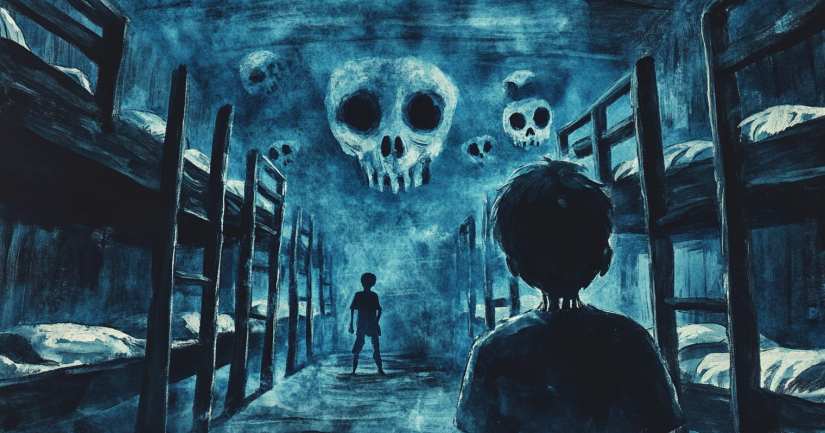
Explore the gripping challenges faced by Wiesel in Night Chapter 4 Quiz, where despair and humanity collide. This powerful novel immerses you in the harrowing experiences of a young Eliezer during the Holocaust. As you navigate the questions, you will uncover the depths of human endurance and the struggle for hope amid despair.
In Chapter 4, Eliezer and his father face new challenges at Buna, a labor camp. Here, the harsh realities of life under Nazi rule become even more evident. The quiz will test your understanding of the pivotal moments and themes that define this chapter. You will explore the relationships between prisoners and their oppressors, and the fight to maintain dignity and humanity.
Survival in the camp becomes a daily battle, but what trials await next? Find out in Night Chapter 5 Quiz. Want to recall the story so far? Review Night Chapter 3 Quiz. And when you’re ready to test your understanding of the full book, take Night Full Book Quiz!
Each question invites you to delve deeper into the narrative, revealing insights about survival, faith, and resilience. As you answer, consider how these experiences shape Eliezer’s worldview. This quiz offers a chance to reflect on the enduring impact of Wiesel’s words. Engage with the text and discover the profound lessons that Night offers. Prepare to be moved, challenged, and enlightened. Night by Elie Wiesel Quizzes: Examine the powerful themes of survival and loss …
What Happened – Night Chapter 4
Elie and his father arrive at Buna, a concentration camp. They are assigned to work in a warehouse for electrical parts. The work is not too difficult, and they live in a block with other prisoners. The prisoners receive better treatment compared to other camps. A young French girl comforts Elie after he is beaten by a foreman named Idek. Elie discovers she speaks German, despite pretending she does not.
Idek beats Elie’s father for no reason. Elie is angry at his father for not avoiding Idek’s wrath. Later, Elie catches Idek with a girl. Idek beats Elie severely for witnessing this. Elie receives 25 lashes and faints.
During an air raid, the prisoners are locked inside their barracks. A man tries to steal soup from an unattended cauldron and is shot. The camp is bombed, but no prisoners are hurt.
A young boy, a pipel, is involved in sabotage. The boy and two men are hanged in front of the prisoners. The men die quickly, but the boy is too light and suffers a slow death. The prisoners are forced to walk past the boy. Many are deeply affected by this event. Elie becomes more questioning of his faith.
Throughout these events, Elie struggles with his feelings about God and the cruelty he witnesses.
Night Chapter 4 – Quotes
- “Where is God now?” – {A young boy}, ‘During a public hanging, this question reflects the loss of faith among prisoners.’
“That night the soup tasted of corpses.” – {Elie Wiesel}, ‘After witnessing the hanging of a child, Elie expresses the deep impact of the event on his psyche.’
“The eyes of all the prisoners were on the child.” – {Elie Wiesel}, ‘As the young boy struggles for life during his hanging, the prisoners are forced to confront the brutality of their situation.’
“Do you think this ceremony will be over soon? I’m hungry…” – {A fellow prisoner}, ‘This statement underscores the dehumanizing effects of the camps, prioritizing survival over compassion.’
“Long live liberty! A curse upon Germany!” – {The condemned man}, ‘A cry of defiance uttered by a man being hanged, highlighting the enduring human spirit even in the face of death.’
“I was no longer able to lament.” – {Elie Wiesel}, ‘Elie reflects on his emotional numbness after repeated exposure to atrocities.’
“For God’s sake, where is God?” – {Another prisoner}, ‘This exclamation during the hanging signifies the collective despair and questioning of faith among the inmates.’
“I felt very strong. I was the accuser, God the accused.” – {Elie Wiesel}, ‘Elie expresses his internal rebellion against a deity he perceives as indifferent to human suffering.’
Night Chapter 4 – FAQ
Chapter 4 of Night delves into themes of survival, dehumanization, and the loss of faith. It highlights the brutal conditions faced by the prisoners and the moral dilemmas they encounter. The chapter also explores how individuals cope with extreme adversity, questioning their beliefs and humanity.
In Chapter 4, Eliezer’s relationship with his father becomes more complex. Eliezer assumes a protective role, often prioritizing his father’s well-being over his own. This shift underscores the deep bond between them, even as the harsh realities of camp life strain their relationship.
Several pivotal events occur in Chapter 4, including the public hanging of a young boy, which profoundly impacts Eliezer. This event symbolizes the loss of innocence and the pervasive cruelty in the camps. Additionally, Eliezer experiences moments of both kindness and betrayal from fellow prisoners, further illustrating the complexity of human nature in dire circumstances.
In Chapter 4, faith is a central theme as Eliezer grapples with his beliefs. The atrocities he witnesses challenge his faith in God and humanity. This internal conflict is a recurring motif throughout the book, highlighting the spiritual and existential crises faced by those enduring unimaginable suffering.
